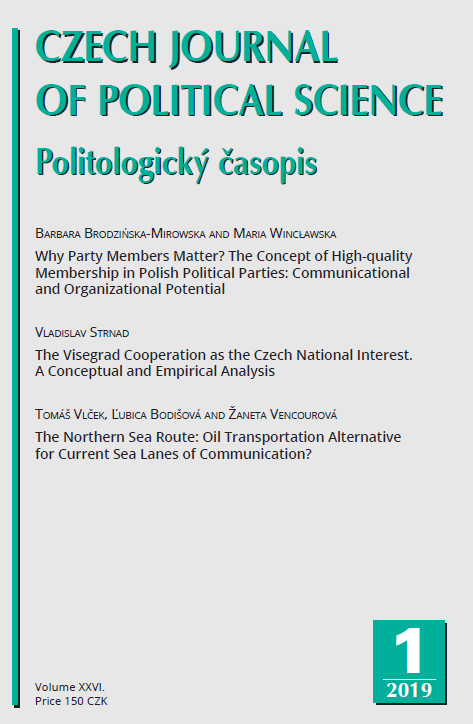The Visegrad Cooperation as the Czech National Interest
The Visegrad Cooperation as the Czech National Interest
A Conceptual and Empirical Analysis
Author(s): Vladislav StrnadSubject(s): Social Sciences, Governance
Published by: Masarykova univerzita nakladatelství
Keywords: Czech Republic; Visegrad Group; national interest; foreign policy; cooperation; mixed methods; migration
Summary/Abstract: This article analyses to what extent the Visegrad dimension of the Czech foreign policy can be considered a legitimate Czech national interest. The temporal framework of the study is driven by the paradigm shift in Visegrad cooperation in the context of the 2015 European migration crisis – from ‘inclusive’ (1991– early 2015) to ‘defensive’ (late 2015–present). Building on the conceptual framework for the legitimacy of national interest, I focused on the first period of cooperation and analysed whether the Visegrad dimension had internal and external legitimacy. Through a mixed method research design, I show that the topic of Visegrad is a long-discussed and advocated policy which has been present throughout the existence of the independent Czech state, regardless of the nature of the political leadership. As I demonstrate empirically, the Czech interest in the Visegrad policy is supported by Czech policy makers, it is acceptable for the other members, and it is compatible with the national interests of other democratic partners in the European and Euro-Atlantic area. The Visegrad policy can be considered as being in the legitimate Czech national interest during the first period of Visegrad cooperation.
Journal: Politologický časopis - Czech Journal of Political Science
- Issue Year: XXVI/2019
- Issue No: 1
- Page Range: 22-49
- Page Count: 27
- Language: English

